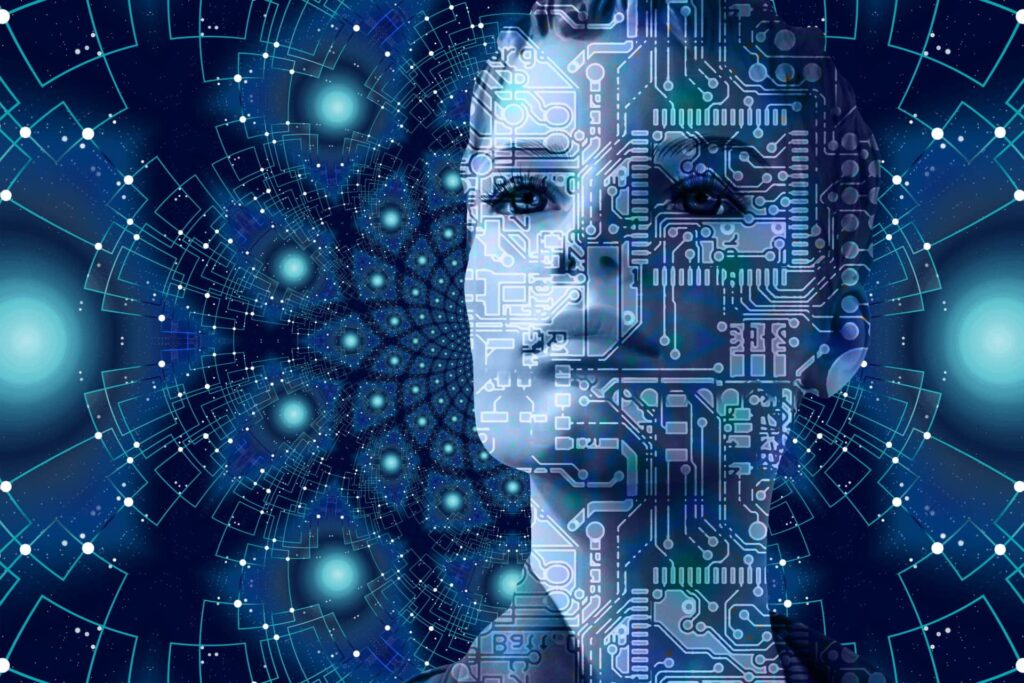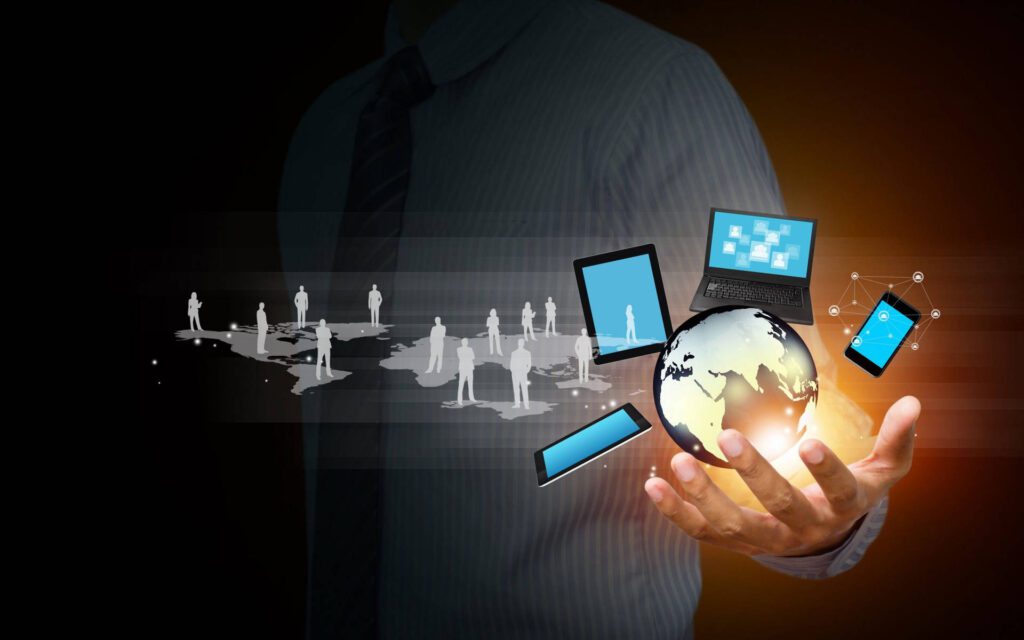The purpose of language is to enable communication and the transmission of knowledge through storytelling and interactions with elders. It facilitated the creation of tools for defense, hunting, agriculture, and house construction. As the population grew, so did the development of technology. The impact of technology on culture has led to increased human life expectancy and improvements in lifestyle. The invention of the printing press, for example, made books, news, and education accessible to the general public.
Communities within large cities emerged to preserve and uphold various traditions. Each group and nation has its own cohesive culture, traditions, and social norms and values. The influence of technology on culture has significantly elevated people’s living standards and sophistication.
What is Modern Technology?

Modern technology is characterized by its emphasis on efficiency and speed. It aims to empower users by providing greater access and control over services and healthcare while facilitating in-person communication between patients and healthcare providers.
Consider this: How frequently do you use the internet for general research? This is a daily practice for millennials, and they often rely on online evaluations and comments before making service-related decisions. This method allows for evaluating a provider’s credibility and assessing potential benefits in their daily lives. This exemplifies the impact of modern technology on culture.
Looking ahead to 2030, technological advancements will enhance the speed, efficiency, and effectiveness of individuals’ care. These advancements have the potential to bring about societal change. However, it’s important to note that you don’t have to wait years to start reaping these advantages.
The impact of modern technology on culture can be summarized as follows:
The values, customs, and behaviors of a society characterize culture. Through individuals, culture observes itself, reflecting their perspectives, actions, values, and the transfer of technology.
- Key aspects of our civilizations, such as language, art, mobility, education, and religion, are significantly influenced by technology.
- The culture of a community serves as a benchmark for understanding, evaluating, and rating technology. Technology impacts every facet of culture, shaping its evolution.
- For technology to fully integrate into the cultural realm, it must coexist harmoniously with social and cultural norms. Otherwise, technological advancements may clash with the preservation of cultural values, negatively impacting modern technology’s influence on culture.
- In the technological world, where nationality, age, and educational background are transcended, individuals can exercise their right to freedom of speech within rational boundaries.
- While technology can be used to fulfill people’s desires and fantasies, a lack of limitations, rules, and consequences can lead to a collapse of culture.
Technological Impact on Culture
The impact of technology on culture is evident in the values, norms, and practices that define a society. Culture, in turn, is observed through individuals, reflecting their perceptions, behaviors, values, and technology transfer. Technology significantly affects core aspects of our cultures, such as language, art, mobility, education, and religion. It acts as a standard for perceiving, judging, and evaluating technology. Technology influences all components of culture, shaping its trajectory of development. To be fully integrated into the cultural dimension, technology must align with a community’s social and cultural conditions. Failure to do so can result in friction between technological advancements and the preservation of cultural values. In the realm of technology, individuals have the opportunity to exercise freedom of expression, transcending factors like ethnicity, age, or education level. While technology can be a tool for realizing fantasies, the absence of constraints, regulations, and consequences can lead to a decline in culture.
Technological Impact on Tradition
The impact of technology on tradition is marked by constant competition between the two within a community. Globalization, facilitated by technology, has transformed the world into a global village. It isn’t easy to imagine life today without electricity, transportation, and communication. Technological advancements in medical science, engineering, and economy have contributed significantly to progress. Industrialization, urbanization, and the development of transportation and communication systems are all possible due to the positive impact of technology. Technology also aids in networking culture, traditions, and societal coherence, shaping the 21st century significantly.
In a TED talk, Sherry Turkle highlights that as our expectations from technology increase, our expectations from each other decrease. We are more focused on building relationships with technology rather than with each other, leading to isolation and constant sensory stimulation from texts, tweets, social media, and emails, rather than engaging in thoughtful conversations and active listening. The dominance of Western culture over weaker cultures can be an example of the negative impact of technology, resulting in the violation of social values and a loss of traditional coherence.
Traditional styles thrive when their inherent value is recognized. Technology can modify methods of production and industrialization without necessarily eradicating traditions. Therefore, technology can contribute to the preservation of traditions if the beneficial aspects are taken into account.
Technological Impact on Social Values
The impact of technology on social values is multidimensional. Technology provides access to extensive knowledge on various subjects and facilitates effective information sharing. Technology assists in the transformation of the economy and the evolution of new social classes, too.
It plays a crucial role in strengthening interpersonal connections. It has contributed to advancements in sectors such as health, transportation, and electricity to all the demographic factors of society, e.g., Modern farming replaced primitive farming, allowing increased crops, less time investment, etc. However, there is a concern that people invest more time in technology and less time in social environments.
Traditional forms of media, such as television and newspapers, have been affected by the rise of technology. The full utilization of technology is often limited to educated individuals. The more technology advances, the more humans may regress. The invention of robots and machines has made humans lazier and more dependent. The existence of bombs, nuclear weapons, and missiles can be attributed to technological advancements. The implementation of technology influences societal values by altering expectations and realities. Overemphasis on technology has created a need for more trust among people. Additionally, technology can be held accountable for issues such as unemployment, cultural lag, and changes in social institutions.
How Do You Handle Problems That Come With Using Modern Technology?

Addressing the challenges that arise from using modern technology requires careful consideration. Despite the impact of technology, there are legitimate concerns that persist. Health and safety risks, such as pollution, nuclear proliferation, and sedentary lifestyles, need to be taken seriously. It is incorrect to assume that technology alone can solve all problems. In biotechnology, ethical questions arise surrounding the implications for humanity, particularly in relation to previously unimaginable possibilities.
- Sedentary Lifestyles
The prevalence of health issues like diabetes that result from insufficient physical activity is alarming. Even rural communities are experiencing new health problems associated with modernity.
Regular exercise is essential to addressing this issue.
- Environmental Damage
The potential for man-made climate change and pollution-induced ozone depletion are two prominent examples of how technology can unintentionally harm the environment and humanity.
A focused effort on environmental sustainability can help mitigate the impact of technology.
- Weapons Proliferation
Technological advancements have made powerful military equipment more accessible to impoverished nations. Cash-strapped countries like Iran could potentially acquire or develop catastrophic biological or nuclear weapons.
A concerted effort towards peaceful resolutions is of utmost importance.
- Over-Reliance
Overreliance on technology impacts various aspects of daily life. There is a misguided belief that more technology in the classroom automatically translates to better education.
Encouraging efforts to strike a balance and retreat from excessive reliance on technology is necessary.
- Unique Ethical Dilemmas
Technological advancements, such as cloning, bring about ethical dilemmas that were previously unimaginable. The creation of “test tube babies” raises concerns about the commodification of individuals. Given that such possibilities were mere fantasies in earlier generations, historical guidance is limited.
Governments should establish comprehensive laws to address the negative impacts of technology on society.
Conclusion
Despite some drawbacks, the overall impact of technology on culture has improved our quality of life. It has not only saved valuable resources like time and money but has also fostered global connectivity by transforming the world into a worldwide village and breaking boundaries based on race, culture, and geography. While online communication has become prevalent, it is essential to use technology to promote positive cultural transformation, respect our values, encourage mutual respect, and foster meaningful connections. As we navigate the twenty-first century, technology should be harnessed to create digital platforms that connect us to each other, promote our values, and foster societal growth.
FAQ’s – Frequently Asked Questions
How does the cutting-edge world of technology revolutionize and reshape our rich culture?
It’s simply amazing how new technology has altered the fundamental foundation of our society. It allows us to connect with different cultures and bridge geographical distances like never before. However, we must exercise caution to avoid any potential erosion of local customs. Striking a balance between embracing technology improvements and actively conserving our distinct cultural identities is critical to a peaceful future.
Is technology changing the nature of human interaction and our long-standing relationships?
Undeniably, technology has become an integral element of our social environment, altering how we interact and communicate. While it provides unparalleled connectivity, there is a legitimate fear that overreliance on technology could destroy true human bonds. It is crucial that we find balance, prioritizing meaningful face-to-face interactions and nurturing genuine relationships amidst the digital age.
How does technology affect the transmission of our timeless wisdom and values?
The use of technology to transmit our prized wisdom and ideals is a two-edged sword. On the one hand, technology provides excellent chances for the further distribution and preservation of our cultural legacy. However, we must be cautious in order to maintain the core of our traditions in the face of fast technological advancement. A mindful use of technology to commemorate and promote our rich legacy is critical for ensuring a balanced future.
What ethical considerations come to the forefront when technology intertwines with our sacred cultural practices?
The ethical considerations that arise when technology converges with our cultural practices are of utmost importance. We must navigate delicate issues such as cultural appropriation, digital privacy, and consent with great sensitivity and care. Respecting the values and beliefs of our communities while incorporating technology into sacred rituals or traditional art forms is paramount. Engaging in open, inclusive dialogues helps us address these concerns responsibly and thoughtfully.
Can technology act as a catalyst for creating an inclusive tapestry of varied cultural experiences?
Undoubtedly, technology has immense potential for celebrating and amplifying the rich tapestry of our different cultural experiences. Virtual reality, augmented reality, and internet platforms allow us to immerse ourselves in the richness of many cultures. By creating technical solutions that welcome diversity, foster cultural exchange, and bridge gaps, we pave the path for a future characterized by inclusion and profound cultural appreciation.

